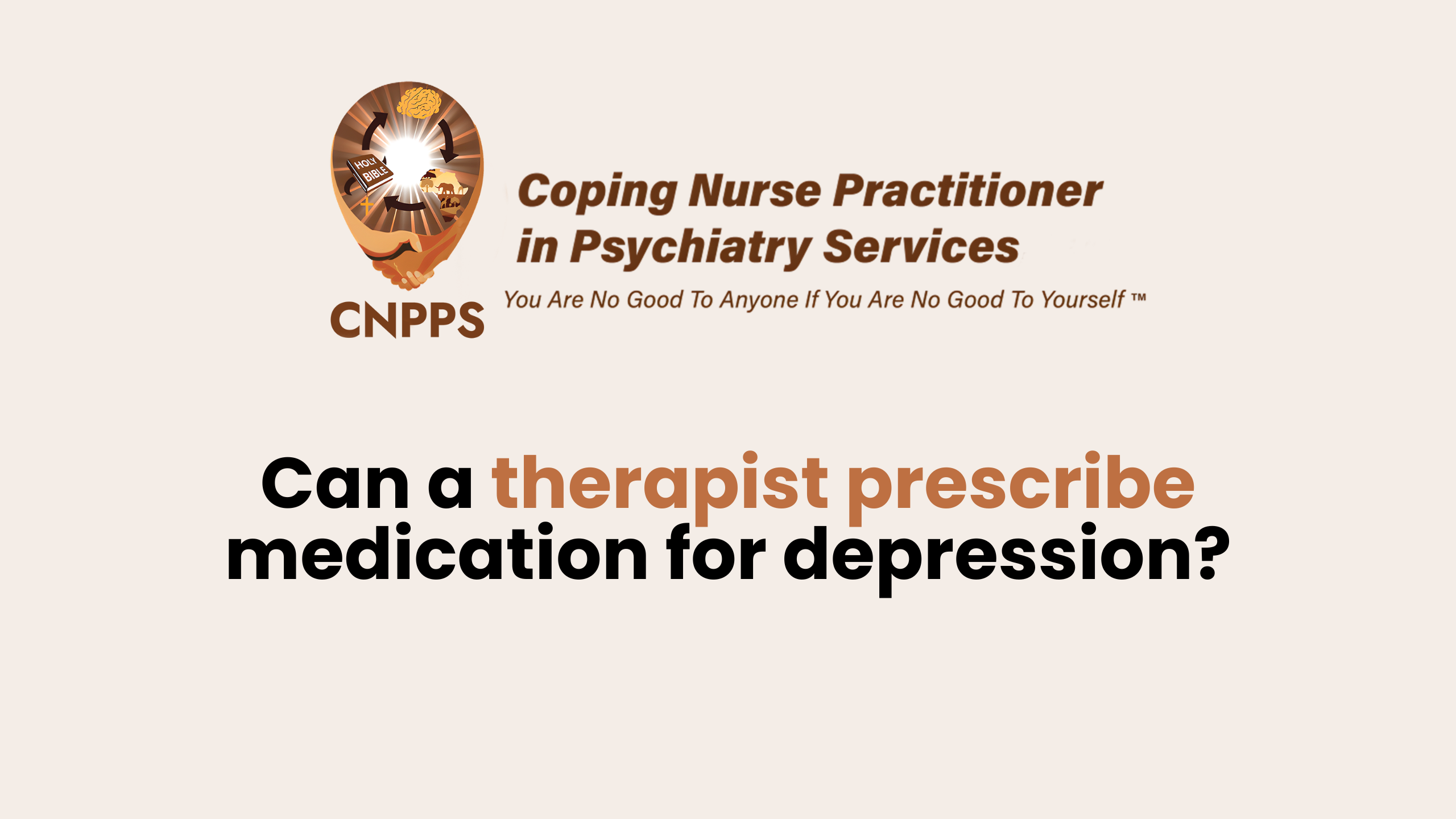Depression is one of the most common mental health conditions, affecting millions of people worldwide. While therapy is often the first step in managing depression, medication can play a crucial role in recovery for many individuals. This raises an important question: Can a therapist prescribe medication for depression? The answer isn’t a simple yes or no—it depends on the kind of mental health professional involved.
The Role of a Therapist
The term “therapist” is broad and generally refers to professionals who provide talk therapy or counseling. These can include:
- Psychologists (PhD or PsyD)
- Licensed Professional Counselors (LPCs)
- Licensed Clinical Social Workers (LCSWs)
- Marriage and Family Therapists (MFTs)
While these professionals are highly trained in providing psychotherapy, most of them do not have the authority to prescribe medication. This is because they typically hold degrees in psychology, counseling, or social work—fields that focus on behavioral and emotional therapies, rather than pharmacology or medicine.
Who Can Prescribe Medication for Depression?
Medication prescription for depression is typically handled by professionals with medical training, such as:
1. Psychiatrists
Psychiatrists are medical doctors (MDs or DOs) who specialize in mental health. They are fully licensed to diagnose psychiatric disorders and prescribe medications, including antidepressants. Many psychiatrists also offer therapy, but their medical training gives them the authority to manage and adjust medications safely.
2. Primary Care Physicians (PCPs)
While not mental health specialists, PCPs often treat mild to moderate depression, especially when symptoms are identified during routine checkups. They can prescribe antidepressants and may refer patients to a therapist or psychiatrist for further care.
3. Psychiatric Nurse Practitioners (NPs)
These are advanced practice nurses with specialized training in mental health. In many states, they have prescriptive authority and can manage psychiatric medications, often working closely with psychiatrists or independently.
4. Physician Assistants (PAs)
PAs with mental health training may also prescribe medication under the supervision of a physician. They are increasingly involved in mental health care due to shortages in psychiatric professionals.
Can Any Therapists Prescribe Medication?
In most cases, therapists cannot prescribe medication. However, there are a few exceptions and unique situations:
Psychologists in Certain States
In the U.S., a few states—such as New Mexico, Louisiana, Illinois, Iowa and Idaho—have laws allowing specially trained psychologists to prescribe medication after completing additional education and certification in clinical psychopharmacology. These psychologists must work under supervision or in collaboration with a medical doctor.
Collaborative Care Models
In integrated care settings, therapists may work alongside psychiatrists, nurse practitioners and other prescribers as part of a collaborative team. While the therapist doesn’t write the prescription, they can play a critical role in monitoring symptoms, communicating with the prescribing provider and helping clients manage side effects.
How Therapy and Medication Work Together
While medication can help regulate brain chemistry and alleviate the biological symptoms of depression, therapy addresses the emotional, cognitive and behavioral aspects of the disorder. The combination of both approaches is often the most effective medical treatment for moderate to severe depression.
Types of Therapy for Depression
- Cognitive Behavioral Therapy (CBT): Helps individuals change negative thinking patterns.
- Interpersonal Therapy (IPT): Focuses on relationship issues contributing to depression.
- Dialectical Behavior Therapy (DBT): Offers skills for emotional regulation and distress tolerance.
- Psychodynamic Therapy: Explores unconscious patterns and unresolved past experiences.
When therapy is combined with medication, individuals often experience greater symptom relief, improved functioning and longer-lasting recovery. The therapist’s role becomes vital in helping clients develop coping strategies, maintain adherence to treatment and process emotional challenges.
When to Consider Medication
Not everyone with depression needs medication, but there are scenarios where it becomes essential:
- Severe or persistent symptoms that do not improve with therapy alone
- Recurrent episodes of depression or a family history of mood disorders
- Physical symptoms like sleep disturbance, appetite changes, or fatigue
- Suicidal thoughts or a risk of self-harm
- Co-occurring mental health disorders, such as anxiety or PTSD
If a therapist suspects that a client may benefit from medication, they typically refer them to a psychiatrist or prescribing provider for evaluation. This referral is an essential part of ensuring safe and comprehensive care.
How to Talk to Your Therapist About Medication
If you’re currently in therapy and wondering whether medication might help, here are some tips for starting the conversation:
- Be honest about your symptoms and how you’re feeling.
- Share any concerns or previous experiences with medication.
- Ask your therapist if they think a psychiatric referral is appropriate.
- Discuss how therapy can continue alongside medication.
- Stay open-minded—medication is one of many tools available, not a sign of failure.
Your therapist can guide you through the decision-making process, connect you with trusted psychiatric professionals and support you throughout your treatment journey.
Conclusion
To answer the original question: Most therapists cannot prescribe medication for depression, but they play a vital role in your mental health treatment. For medication needs, psychiatrists, psychiatric nurse practitioners and certain primary care doctors are the go-to professionals. However, the partnership between therapists and prescribers is essential in delivering well-rounded, effective care for depression.

Leave a Reply